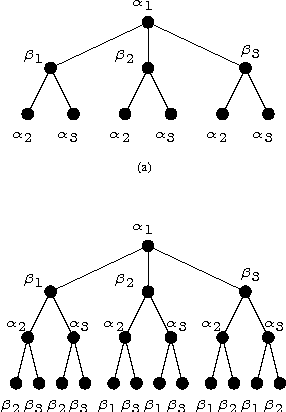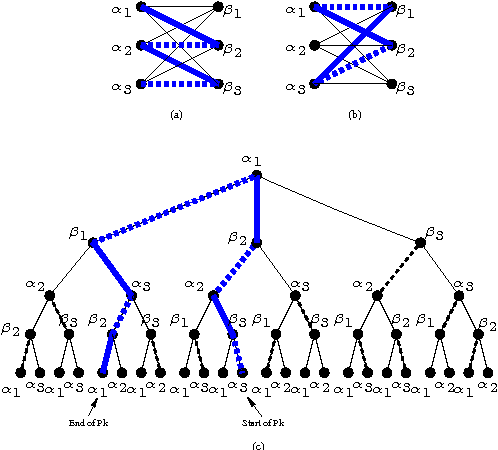Maximum Weight Matching via Max-Product Belief Propagation
Paper and Code
Apr 08, 2007

Max-product "belief propagation" is an iterative, local, message-passing algorithm for finding the maximum a posteriori (MAP) assignment of a discrete probability distribution specified by a graphical model. Despite the spectacular success of the algorithm in many application areas such as iterative decoding, computer vision and combinatorial optimization which involve graphs with many cycles, theoretical results about both correctness and convergence of the algorithm are known in few cases (Weiss-Freeman Wainwright, Yeddidia-Weiss-Freeman, Richardson-Urbanke}. In this paper we consider the problem of finding the Maximum Weight Matching (MWM) in a weighted complete bipartite graph. We define a probability distribution on the bipartite graph whose MAP assignment corresponds to the MWM. We use the max-product algorithm for finding the MAP of this distribution or equivalently, the MWM on the bipartite graph. Even though the underlying bipartite graph has many short cycles, we find that surprisingly, the max-product algorithm always converges to the correct MAP assignment as long as the MAP assignment is unique. We provide a bound on the number of iterations required by the algorithm and evaluate the computational cost of the algorithm. We find that for a graph of size $n$, the computational cost of the algorithm scales as $O(n^3)$, which is the same as the computational cost of the best known algorithm. Finally, we establish the precise relation between the max-product algorithm and the celebrated {\em auction} algorithm proposed by Bertsekas. This suggests possible connections between dual algorithm and max-product algorithm for discrete optimization problems.
 Add to Chrome
Add to Chrome Add to Firefox
Add to Firefox Add to Edge
Add to Edge